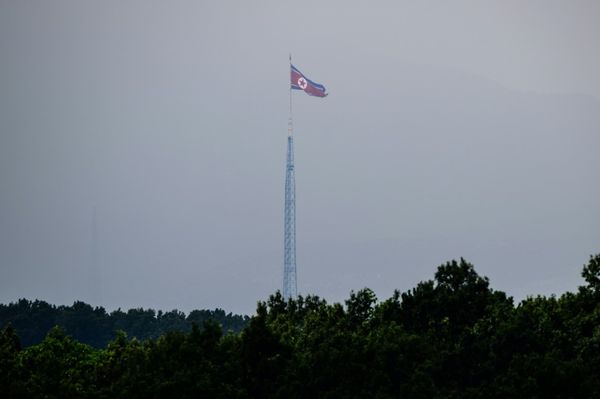/RTX%20Corp%20logo%20on%20phone-by%20T_Schneider%20via%20Shutterstock.jpg)
Arlington, Virginia-based RTX Corporation (RTX) operates as an aerospace and defense company. It focuses on advancing aviation, building smarter defense systems and creating innovations to take humanity deeper into space. With a market cap of $162.2 billion, RTX employs over 185,000 people across its Collins Aerospace, Pratt & Whitney and Raytheon businesses.
Companies worth $10 billion or more are generally described as "large-cap stocks," and RTX fits this bill perfectly. Given its dominance in the defense and aerospace industry, its valuation above this mark is not surprising. The company’s defense products and technology protect approximately 50% of the world's population and support 90% of the Department of Defense and commercial space launches, and 70% of the airborne communications for the U.S. and allied nations.
Despite the strength, the defense giant has hit a slight rough patch recently. RTX stock touched its 52-week high of $128.70 on Oct. 22 and is currently trading 5.3% below that peak. RTX stock prices have observed a slight dip over the past three months lagging behind the Nasdaq Composite’s ($NASX) 9.7% gains during the same time frame.

However, RTX has substantially outperformed the Nasdaq Composite over the longer term. RTX stock has surged 44.8% on a YTD basis and 50.5% over the past 52 weeks, outpacing NASX’s 28% gains in 2024 and 34.8% returns over the past year.
To confirm the longer-term bullish trend, RTX stock has traded above its 200-day moving average over the past year. However, it is trading below its 50-day moving average since mid-November.

RTX stock touched its 52-week high before observing a slight dip after the release of its better-than-expected Q3 earnings on Oct. 22. The company reported 6% year-over-year growth in adjusted sales, reaching $20.1 billion meanwhile its organic sales surged 8% year-over-year to approximately $19 billion, surpassing Wall Street’s expectations. The company also observed notable growth in profitability with its adjusted EPS growing by a staggering 16% year-over-year to $1.45, surpassing analysts’ estimates by 9%.
This growth was driven by strong demand across its portfolio and disciplined expense management. At the end of the quarter, RTX held a backlog of $221 billion, and observing the business momentum, the company raised its full-year sales and earnings guidance, further bolstering investor confidence.
Despite the massive surge in stock prices, RTX has lagged behind its competitor GE Aerospace’s (GE) 78.4% gains in 2024 and 91.6% returns over the past year.
Among the 22 analysts covering the RTX stock, the consensus rating is a “Moderate Buy.” RTX’s mean price target of $131.86 represents an 8.2% premium to current price levels.







